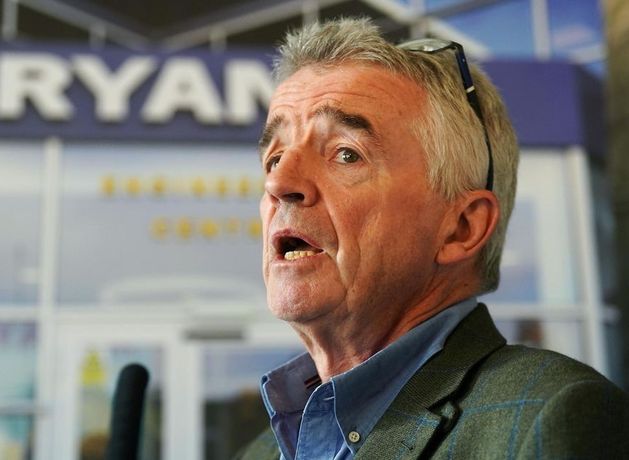Bussiness
Dublin Airport to reassess passenger charges after watchdog upholds Ryanair complaint

Airline complained to Irish Aviation Authority and said its observations had been ignored
In September 2023, Dublin Airport, which is controlled by the DAA, published its proposed airport charges for the March 2024 to March 2025 period.
In December last year, Ryanair formally complained to the Irish Aviation Authority, alleging that Dublin Airport had not fully complied with its obligations under an EU directive that regulates the essential features of airport charges across the trading bloc. Those rules apply to airports handling more than five million passengers a year.
The suite of airport charges that was proposed by Dublin Airport for the 2024-2025 period reflected the overall maximum permitted charge per passenger that was previously set by the Irish Aviation Authority (IAA).
While Ryanair – whose group chief executive is Michael O’Leary – made complaints to the IAA regarding the previous determination of overall charges at Dublin Airport, the relevant complaints considered by the IAA related to a transfer passenger charge, the runway movement charge, the low emissions aircraft discount scheme and a nitrogen oxide charge.
Today’s News in 90 seconds – 28th May 2024
Ryanair wrote to Dublin Airport in October last year, criticising both the proposed increases to airport charges, and what Ryanair alleged to be inadequate and unclear consultation documents.
Dublin Airport responded that the aeronautical charges set by the airport have always followed the movement in annual price caps and that it had provided “extensive consultation materials to support the airport charges process”.
Over the course of October, Dublin Airport continued the consultation process with airlines in relation to the proposed charges, issuing a decision paper in late November.
Ryanair wrote to Dublin Airport on 4 December, alleging that its letters of 6 October and 27 October were unanswered by Dublin Airport, and that many of the consultation comments and questions were excluded from Dublin Airport’s ‘Summary of Consultation Responses’ in its decision paper.
The airline has claimed that that an alleged “deliberate decision to ignore Ryanair’s questions and comments” constitutes a breach of the transparency requirements under relevant regulations.
Following a formal complaint to the IAA by Ryanair, the authority asked Dublin Airport for information to assist the investigation of the airline’s complaint.
Ryanair alleged that the passenger transfer charge proposed by Dublin Airport is discriminatory against point-to-point airlines, such as Ryanair, which it claimed, are cross-subsidising transfer passengers.
It also alleged that the proposed runway movement charge was discriminatory in favour of larger aircraft.
Ryanair also disputed the nitrogen oxide charge. It argued that in the absence of any evidence of a nitrogen oxide problem at Dublin Airport, there is no basis for this charge. Ryanair claims that a nitrogen oxide charge would deter environmentally friendly aircraft from Dublin Airport, given trade-offs with other pollutants.
In a draft decision, the IAA has upheld the Ryanair complaints.
The authority said that in respect of the four specific issues that Ryanair has complained about and which were considered by the IAA, it has not been “sufficiently demonstrated” that they are non-discriminatory and justified as being complaint with the appropriate laws.
“These charging modulations/differentiations need to be reassessed by Dublin Airport, with a view to addressing the various issues of transparency, relevance, and objectivity,” the IAA said in its draft decision.
However, it said proposed that there won’t be any retrospective action or adjustments to charges in the meantime, in particular in relation to the charges currently in effect for summer 2024. Reassessed charges should be in effect for the upcoming winter season, it has proposed.
The DAA, headed by CEO Kenny Jacobs, has been asked for comment.










